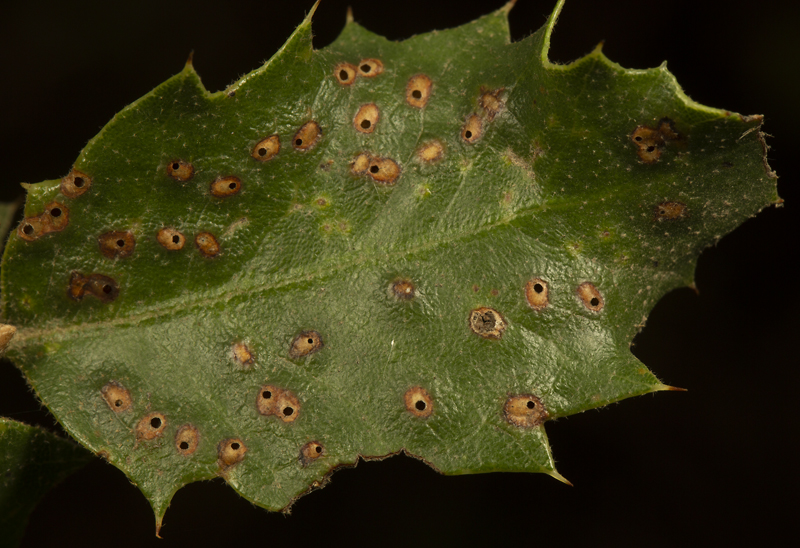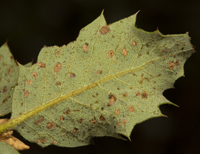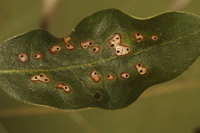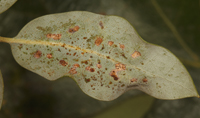|
Gall type #24
These may be induced by a named cynipid, but there are several leaf blister galls on Q. chrysolepis with
different names. I'm not sure how they're different from each other. It's possible these are galls of
the bisexual generation of Heteroecus dasydactyli.
It's also possible the galls pictured on this page are Heteroecus devorus. Another possibility is Plate 230 in Russo (2021),
showing galls that look like these and are listed as induced by an unknown species.
Heteroecus devorus and Heteroecus crescentus are both described [Lyon (1984)] from leaf
blister galls on Q. chrysolepis. Heteroecus devorus adults emerge
from the dorsal surface of the leaf; Heteroecus crescentus adults emerge from the vental surface
of the leaf. The internal gall structure of the two types of galls are different. I've never dissected
any of these galls, and don't see leaf blister galls on Q. chrysolepis often, so I'm not sure
if the images on this page are of a known species or not.
Russo (2021) Page 158, Plate 230. [Clustered Blister Gall Wasp, Unknown #24]
Russo (2021) Page 135, Figure 44. [Bisexual generation Heteroecus dasydactyli]
Weld (1957) "Small scattered cells, leave scarcely thickened, exit hole above." No figure.
Small blister cells in leaves, visible on both sides, exit holes on dorsal surface.
Have seen on Quercus chrysolepis.
Contra Costa, Mendocino, San Mateo, Santa Clara, and Siskiyou Counties (California)
|

IMAGE 1
November 11, 2017
San Mateo County
Host Quercus chrysolepis.
|

IMAGE 2
Ventral surface of leaf
in IMAGE 2.
November 11, 2017
San Mateo County
Host Quercus chrysolepis.
|

IMAGE 3
Dorsal surface of leaf.
October 12, 2013
Mendocino County
Host Quercus chrysolepis.
|

IMAGE 4
Ventral surface of leaf
in IMAGE #3.
October 12, 2013
Mendocino County
Host Quercus chrysolepis.
|
|
|